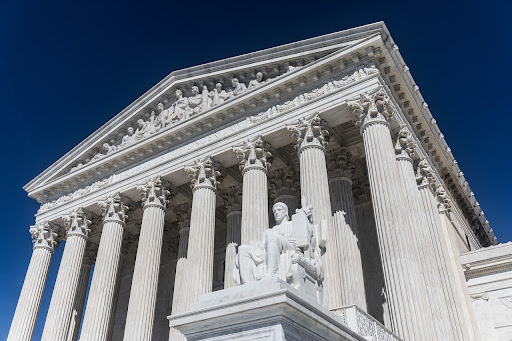In 2023, the changes to affirmative action caused turbulence to the legal landscape. The organization Students For Fair Admissions (SFFA) initiated a series of legal challenges, starting with public and private colleges, and eventually extending its efforts to include a lawsuit against the military academy West Point. Pete Williams, a former NBC correspondent with three decades of experience covering the Supreme Court and the Department of Justice, now offers insights into the Court’s role in this evolving narrative
In a six to three decision, the Supreme Court of the United States ruled that the admission policies at UNC and Harvard were unconstitutional. In Sept., the victorious SFFA filed a suit against West Point arguing that the use of affirmative action at military institutions is unconstitutional. But the upcoming decision in SFFA v. West Point is not what Americans should be concerned about; we should be looking for upcoming cases involving affirmative action in employment.
Williams explained that SFFA’s argument boils down to this scenario: you have two students of equal qualifications, such as both being talented trombone players and valuable additions to the fencing team, with identical GPAs. On the surface, these students appear to be identical as potential candidates for admission, but according to SFFA, race is given undue prominence in the decision-making process.
To SFFA, “that’s racial discrimination [and] it shouldn’t be allowed,” said Williams.
“No one should be surprised about what the court said about affirmative action in these two cases,” said Williams, “It was inevitable that they were going to strike it down. They’ve been heading in that direction.”
In the wake of these decisions, Williams warned that the public at large already knew that minority enrollment might decrease. There is no need for speculation regarding this consequence of the court decision. It is worth noting that certain states, like California, have already legally prohibited the use of affirmative action in college admissions. NPR confirms William’s point as minority enrollment at public colleges in California has decreased due to this restriction
Looking back to SFFA v. UNC and Harvard, Williams noted that the majority had three major issues with the admissions policies. First, the concept of requiring affirmative action for diversity, first, entails racial stereotyping. Secondly, it’s an idea with inherent inconsistencies that are challenging to address, as Williams pointed out. And thirdly, it raises concerns about the absence of a clear, logical endpoint.
A footnote by Chief Justice John G. Roberts, Jr. created a situation for SFFA to challenge race-based admissions elsewhere. Williams said, “What [Roberts] is actually…doing, though, is saying, this decision does not govern the military academies.” The SFFA lawsuit represents the fringes of affirmative action being tested.
The U.S. military has historically supported affirmative action. In Grutter v. Bollinger (2003), the Court found arguments in favor of affirmative action very persuasive in a friend of the Court brief (Amicus Curiae). Williams said, “Justice O’Connor was very impressed by this argument…made by military commanders who said, for the sake of national security and unit cohesion and the good of the force, we need to have a diverse officer corps. And, of course, the military makes a similar argument now.”
A major difference in decisions involving affirmative at universities versus military academies is that “…the universities did not offer a lot of hard data on the advantages of diversity. Guess what, in their brief in the Grutter…, the military commanders were up to their necks in data.” Williams expects this distinction to be a key factor in the West Point case.
Williams contends that “[the] military would say..that, in fact, national security depends on taking race into account.” Nevertheless, whatever decision is reached in SFFA v. West Point, it will not be far-reaching enough to warrant significant attention.
Notably, the decisions in SFFA v. Harvard, UNC and West Point involve the 14th Amendment and Title VI of the Civil Rights Act. Williams said, “Title VII of the Civil Rights Act is almost identical. And that’s what implies applies in the context of employment. So those lawsuits are already coming.
Williams expects that the “…general counsel of large corporations are already looking at their hiring programs to avoid explicit discussions of quotas or hiring goals, or…bragging about diversity, equity and inclusion…and bragging about affirmative action because those lawsuits are next.”
To Williams “the much bigger follow up to these decisions of Harvard and UNC [is] in the employment context. Because affirmative action in hiring is going to be a thing of the past.” He does not see any other likely outcome.
Some in the Court feel that racism and unequal opportunity are problems of the past. Williams said, “Justice O’Connor said that’s like throwing your umbrella away because you’re not getting wet when it’s not raining. You know, you still need it. And that’s the fundamental disagreement. I think that divides the court.”
Affirmative action faced a turning point with the Court striking down admission policies at UNC and Harvard. The implications of these decisions extend beyond higher education. As we look ahead, the battleground for affirmative action is shifting towards considering racial factors in employment, where large corporations are already adapting their hiring practices to navigate the legal landscape. These rulings signal a sea change in the role of affirmative action in American society, reflecting a fundamental division on the issue within the courts and the broader public.


